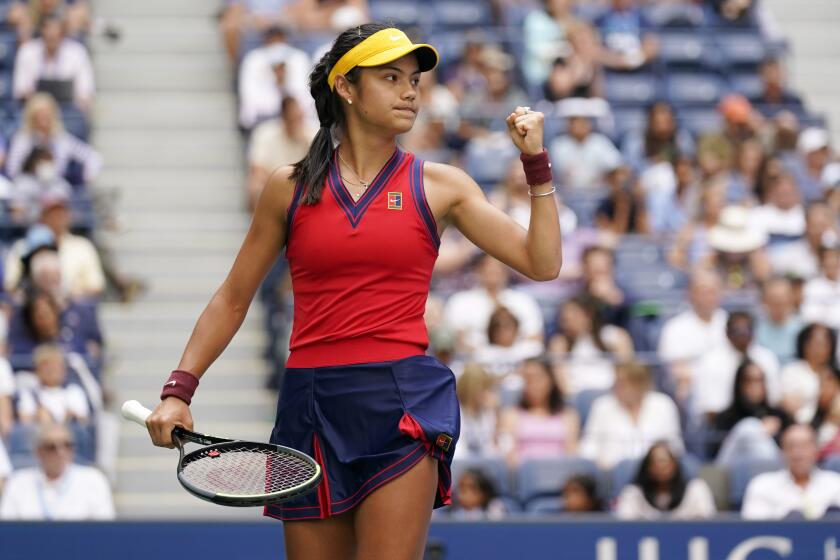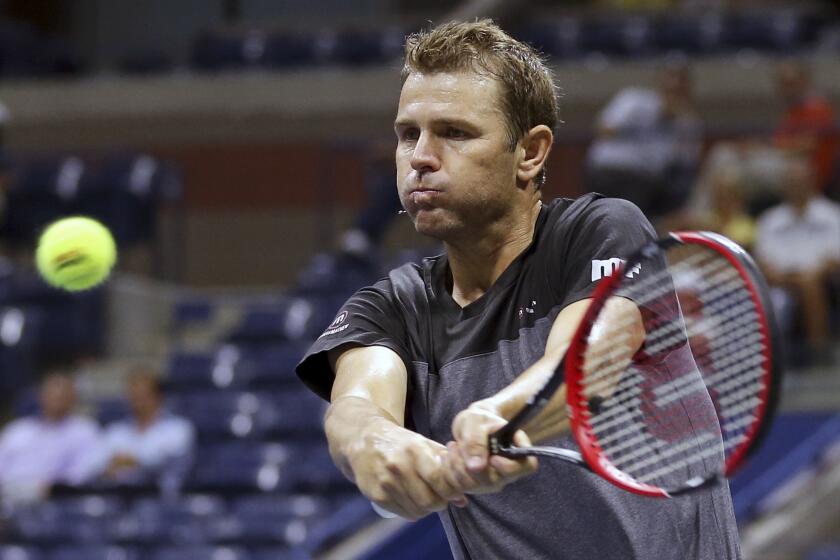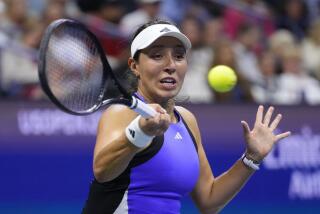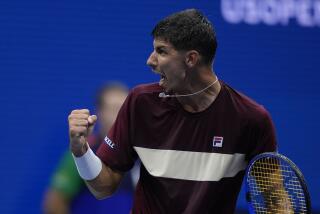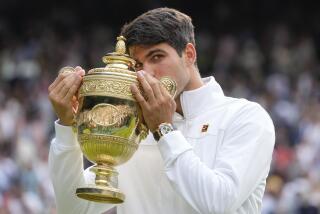Column: At U.S. Open, Novak Djokovic turns tougher as he gets closer to Grand Slam
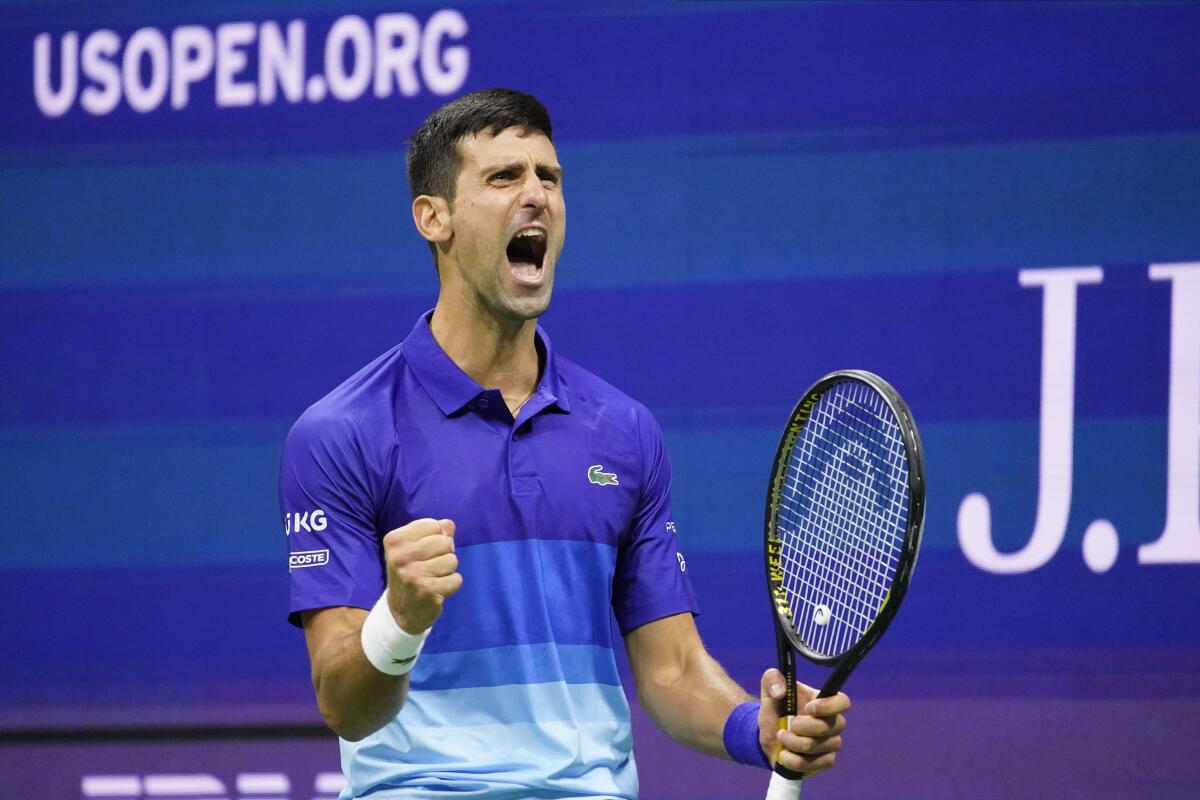
NEW YORK — There is no single element in Novak Djokovic’s game that makes him better than everyone else, nothing that can be pinpointed as the sole reason he’s in position to become the first man in 52 years to win a calendar Grand Slam.
Nor is there a magic potion to explain why he’s on the verge of passing Roger Federer and Rafael Nadal to become the men’s career leader with 21 Grand Slam singles titles, a feat he can accomplish in the U.S. Open final Sunday against Daniil Medvedev of Russia.
Put together the fanatical training that’s behind Djokovic’s unmatched endurance, the formidable mental strength he has developed, and his ability to excel at any style of game his opponent cares to throw at him, and the result is a complete player whose stranglehold on the No. 1 world ranking isn’t about to end anytime soon.
With an audience at Arthur Ashe Stadium that included Rod Laver — the last men’s calendar Slam winner in 1969 — Djokovic needed some dramatics to subdue No. 4 Alexander Zverev of Germany, 4-6, 6-2, 6-4, 4-6, 6-2. Zverev, at 24 a decade younger than Djokovic, is the only player who has taken Djokovic to five sets here. That’s small consolation for the younger generation that saw this tournament as their chance to fill the void created when injuries took Federer, Nadal and defending champion Dominic Thiem out of the tournament.
May Emma Raducanu and Leylah Fernandez have delivered remarkable runs at the U.S. Open and here’s hoping their careers continue with minimal mental health strain.
“There is a reason he’s won 20 Grand Slams. I think mentally he’s the best player to ever play the game,” Zverev said. “Mentally in the most important moments, I would rather play against anybody else but him.”
Djokovic has been hesitant to say much about his calendar Slam quest, and that didn’t change Friday. “I’m going for a fourth U.S. Open. That’s all I’m thinking about,” he said during an on-court interview. If that’s his way of handling the pressure, it’s working, Still, he knows it’s bigger than that.
“One match left. All in. Let’s do it,” he said. “I’m going to put my heart and my soul and my body into that one. I’m going to treat it like it’s the last match of my career.”
Zverev was proud that he stayed with Djokovic as long as he did and praised Djokovic’s clutch serving. He said the match could have gone either way but at least had the grace to note that “very often” matches go Djokovic’s way. “I think it’s great for the sport. Nobody thought anybody will do it again, what Rod Laver did. To see him have the chance on Sunday — I do believe that he will do it — is great. He’s breaking every single record that there is,” Zverev said.
“If you look at the stats, if you look at the pure game of tennis action, he’s the greatest of all time. Nobody is there with him, because most weeks world No. 1, most Masters 1000s titles, most likely going to be the most Grand Slams at the end of the day. And he has the chance of winning all four in the same year. How do you compete with that?”
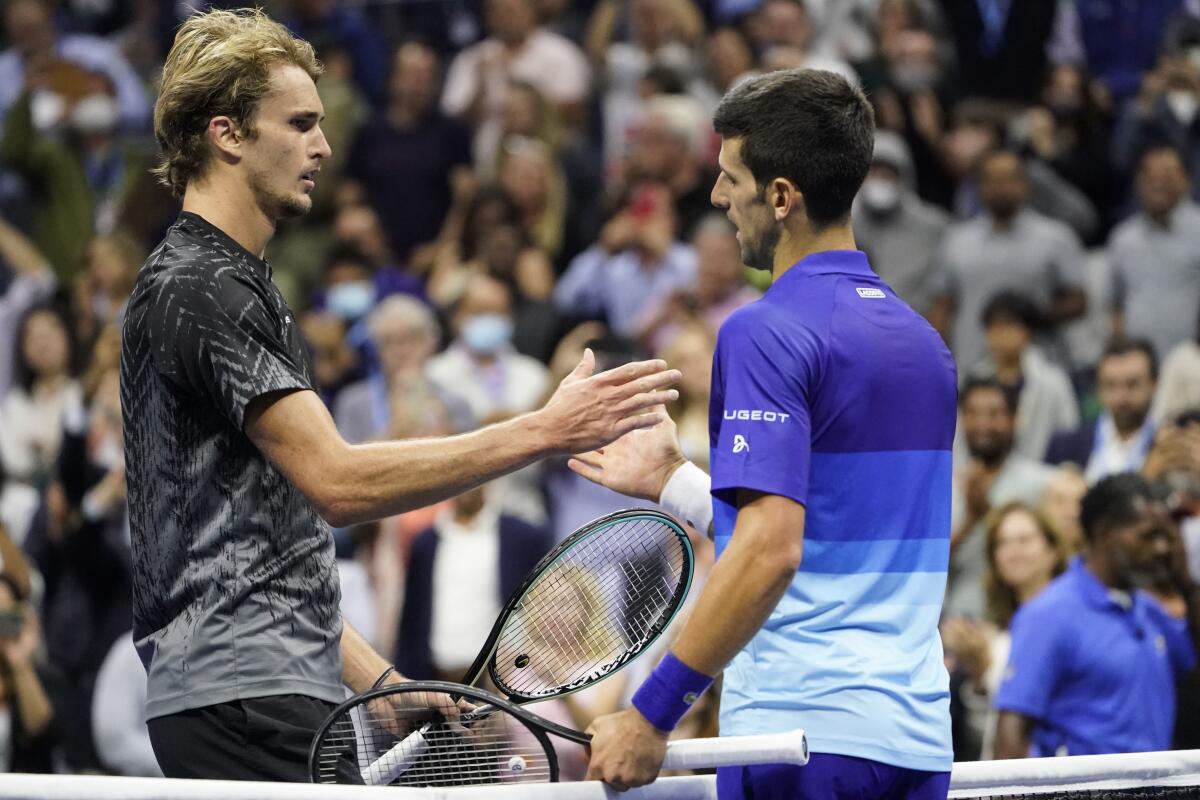
This was the fourth straight match in which Djokovic lost the first set. On the three previous occasions — against Kei Nishikori in the third round, Jenson Brooksby in the fourth round and Matteo Berrettini in the quarterfinals — he won the next three to advance. Zverev put up a stronger and better fight until he began committing careless errors in the fifth set.
Zverev gained a break for 5-4 in the opening set when Djokovic double faulted, and Zverev then held serve to win the set on his third opportunity. Djokovic got an early break in the second set and cruised the rest of the way, but the third set featured remarkable rallies. Zverev won a 53-shot rally with a devastating forehand to save a second set point in the 10th game of the third set, but Djokovic closed it out on his third set point.
Zverev broke for a 2-1 lead in the fourth set with a forehand winner and consolidated the break by holding serve. He closed out the set on his first set point opportunity, setting up the decisive fifth set.
Mardy Fish was at the peak of his tennis career when crippling stress forced him to withdraw so he could focus on his mental health. He shares his story in a Netflix documentary and offers advice to tennis players
Djokovic ended a riveting, 30-shot rally with a forehand passing winner to get a break in the fifth set and take a 2-0 lead, which he extended to 3-0 by holding serve. Zverev made several unfathomable errors in the fourth game and Djokovic broke his serve again for 4-0. Djokovic ended it on his first match point opportunity. “I knew it was going to be a great battle,” Djokovic said. “I hope we brought a show for all of you who came to the stadium.”
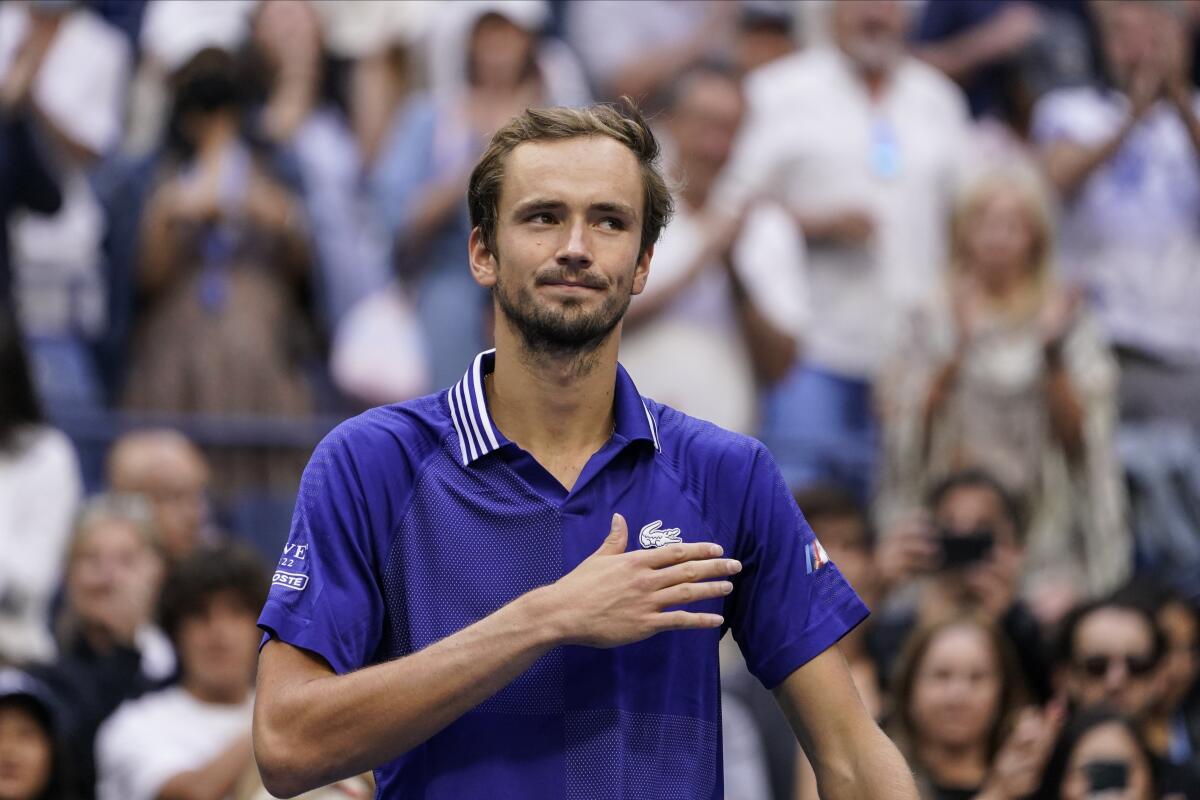
Medvedev, a 6-4, 7-5, 6-2 semifinal winner over No. 12 seed Felix Auger-Aliassime of Canada on Friday, found some appeal to the notion he could play the spoiler in Djokovic’s quest. Djokovic has a 5-3 lead over him in their career head-to-head matchups, including a straight-sets win in this year’s Australian Open final. “I’m probably [going to] be in the history books a little bit somewhere like not letting him do this,” Medvedev said.
“But I don’t really care about it. I think it’s more about him; that it affects him. From one side, for sure he’s going to feel the pressure a little bit about it, already today. From the other side, that’s what’s going to make him be even better in tough moments.”
When the going gets tough, Djokovic gets wins.
More to Read
Go beyond the scoreboard
Get the latest on L.A.'s teams in the daily Sports Report newsletter.
You may occasionally receive promotional content from the Los Angeles Times.

